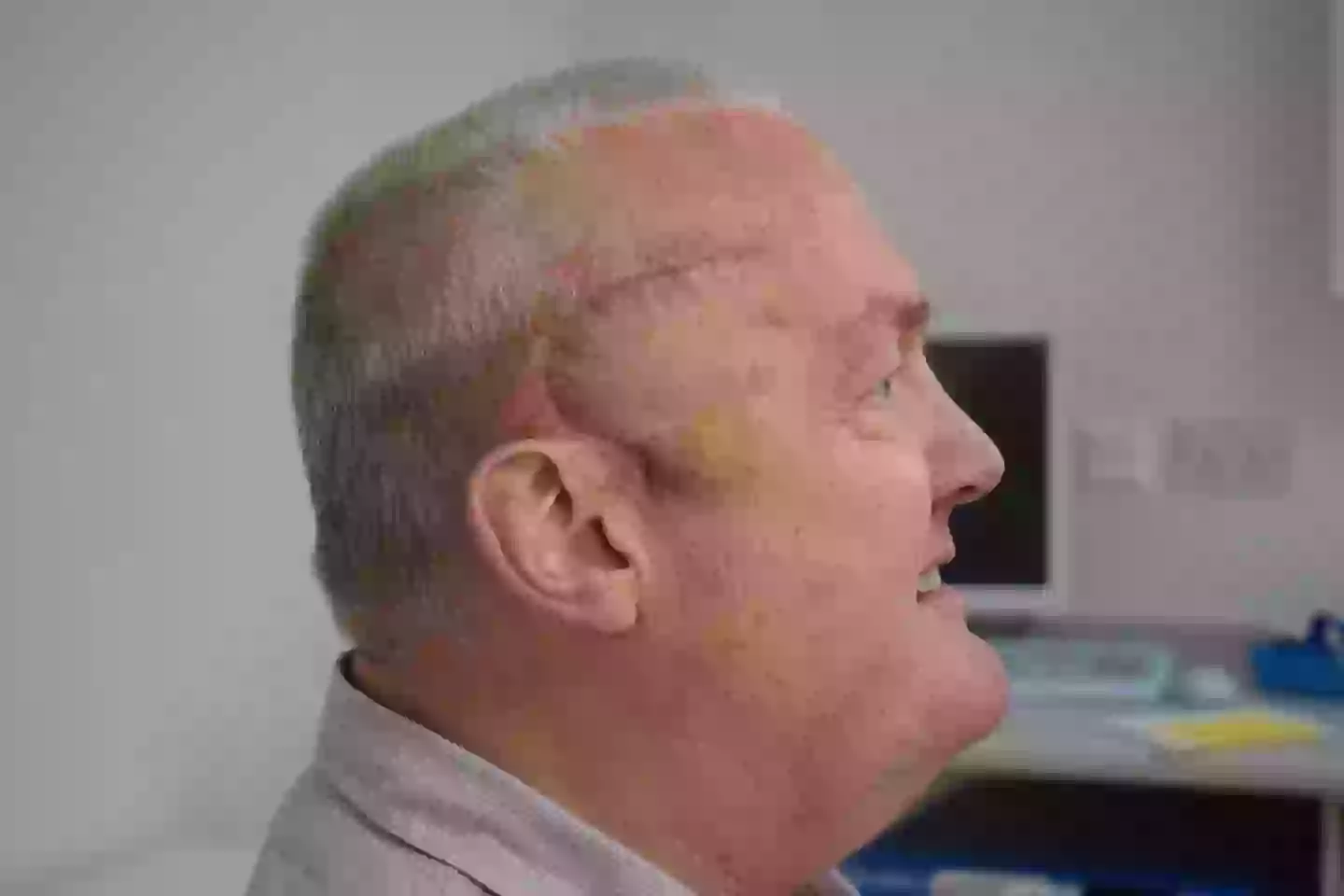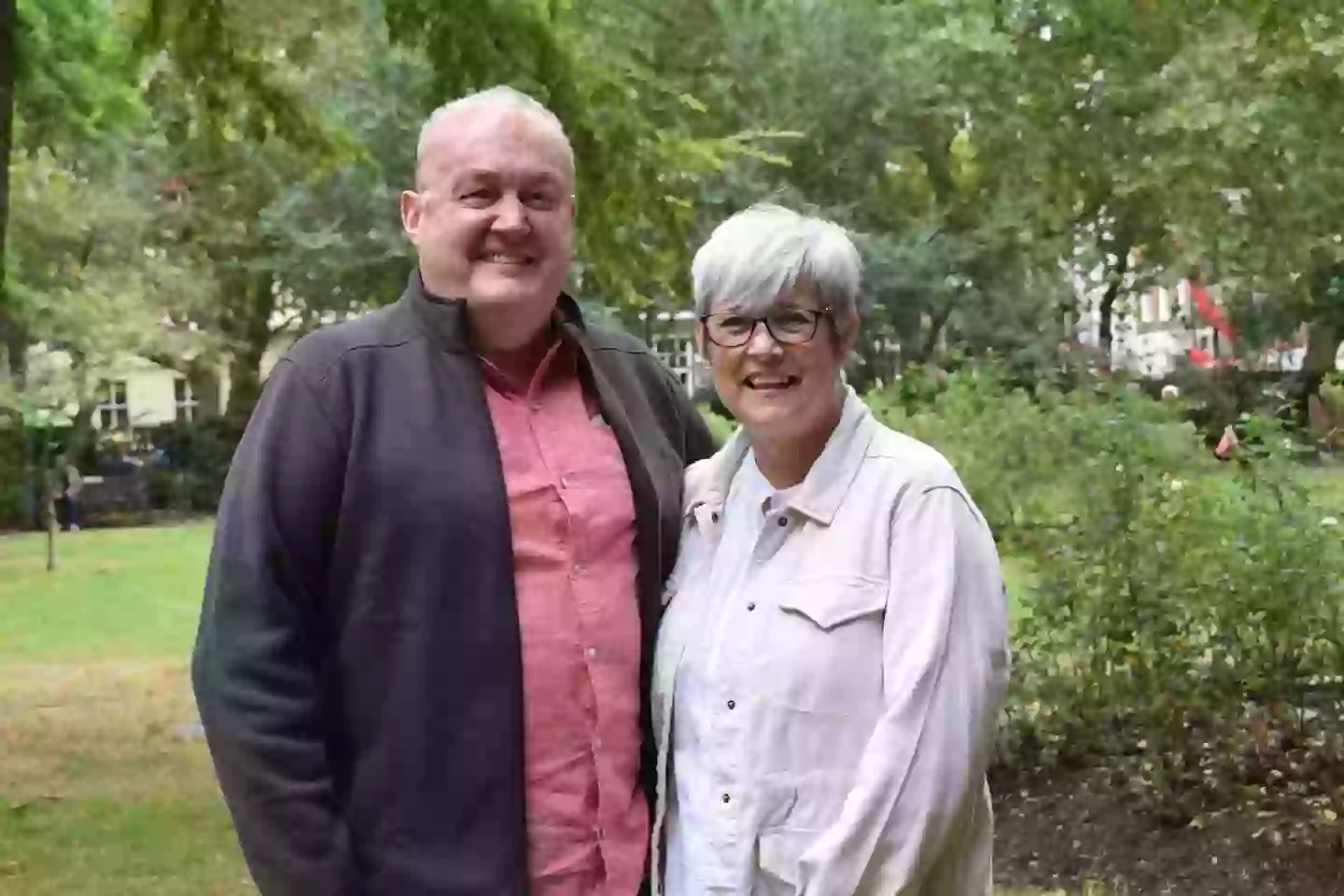
Groundbreaking health studies in the United Kingdom have been able to shrink one man's deadly brain tumor by half in just a matter of weeks.
As cancer diagnoses continue to rise and are expected to hit 29.9 million new diagnoses by the year 2040, research is ongoing on how best to tackle the disease.
We can only imagine what it's like being diagnosed with a brain tumor, but for 62-year-old Paul Read, he's been facing this prognosis since December 2023.
Advert
Now, he's enrolled in a potentially life-changing study.
Doctors at University College London Hospitals NHS Foundation Trust (UCLH) are focusing a clinical trial on glioblastoma, which is a type of cancer that tends to kills most patients within 18 months.
Thanks to new treatment as part of the CITADEL-123 trial, doctors are injecting low levels of radiation directly into the tumor, hoping to kill off the cancerous cells.
Read is the first patient to undergo this radical treatment, although a second participant has just started their treatment.
Advert
As for Read, he's seen his tumor shrink by up to 50% in a matter of weeks.

Surgeons removed as much as Read's tumor as possible and then implanted a small medical device known as an Ommaya reservoir under his scalp
The ATT001 Iodine-123 labelled PARP inhibitor is injected weekly into Read's tumor, with treatment running for between four and six weeks.
Advert
As ATT001 is incredibly potent over short distances, it's supposed to cause lethal damage to the cancerous cells but save healthy tissue.
Read first noticed a severe headache last December, and after two weeks of pain, his wife worried that he'd suffered a stroke due to his face dropping on one side.
Doctors discovered the glioblastoma and attempted to remove it, followed by radiotherapy and chemotherapy.
Sadly, as Read has been diagnosed with a recurrent glioblastoma, treatment hasn't worked so far.
Advert
After agreeing to take part in clinical research and saying he knew 'the outcome isn't great,'' Read said he was happy to be enrolled on the CITADEL-123 trial: "This trial was a lifeline, as the likelihood of survival according to the data was a year or less for me.
“I am delighted to be given the opportunity to be part of this trial and I have not experienced any side-effects from the injections."

Saying that while he's a little tired, Read says he generally feels 'very good': "I’m not frightened by any of this. We are all dealt a hand of cards and you don’t know which ones you are going to get...It will be wonderful if this treatment helps me and if it doesn’t, it doesn’t.
Advert
"CITADEL-123 was designed by UCLH consultant medical oncologist, Dr Paul Mulholland, who told the PA news agency that things have being going swimmingly so far: "The radioactivity in the drug targets the tumour cells specifically – it’s a tiny amount of radioactivity."
As for Read's tumor shrinking by 50%, Mulholland is hopeful that this could be the start of something great: "We’ve just gone through his scan results with him and his end of treatment scan shows a reduction in the tumour, which is really quite remarkable for somebody whose tumour is so aggressive."
Still, as this is the first in-human study, Mulholland remains 'cautious' and is only treating patients for six weeks.
The team is currently only treating one patient a month, but with hopes to expand the trial into other phases, it's hoped that CITADEL-123 could soon be rolled out on a wider scale.
